How to Evaluate and Improve Students' Computational Thinking in Creative Space, Dr. Yin Yue Was Invited to Huaxia Curriculum Forum Held By ICI
2019-04-29
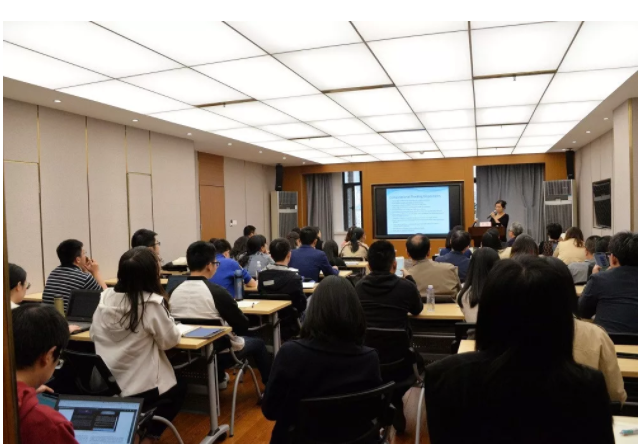

Computational thinking is the focus of international core literacy research and policy. However, how to evaluate computational thinking and how to effectively improve computational thinking is a difficult point. On the afternoon of April 26, Dr. Yin Yue, an associate professor from the Department of Educational Psychology at the University of Illinois, Chicago, visited the 144 Huaxia Curriculum Forum, where she gave an academic report entitled "Improving and Evaluating Students' Computational thinking in Creative Space". In the report, Dr. Yin shared the latest development of the project funded by the National Natural Science Foundation of the United States, (NSF), that is, how to improve students' computational thinking and promote STEM learning by embedding formative assessment into creative activities. The forum was presided over by Professor Chen Shuangye, deputy director of ICI.

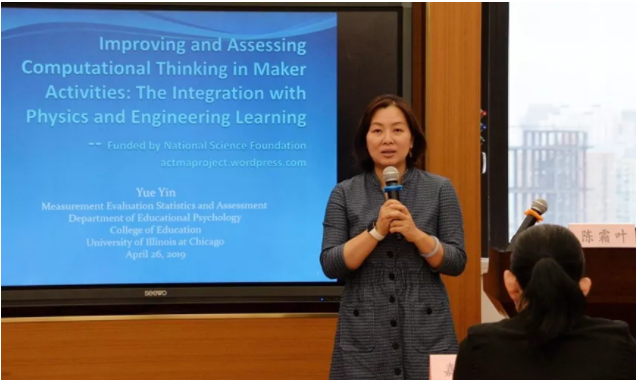
△ Professor Chen Shuangye
In the report, Dr. Yin first expounds the four skills and five tendencies that are mainly concerned in the research from the importance and connotation of computational thinking. Based on the widely opened creator space in American libraries and museums, it just provides an ideal learning environment for the development of students' computational thinking. According to whether they are integrated into the daily life situation and whether they need to use computers, Dr. Yin and her team have designed four kinds of creative activities suitable for senior high school students, hoping to take the real situation close to the students as the starting point, from easy to difficult. Step by step to guide students use computational thinking consciously.
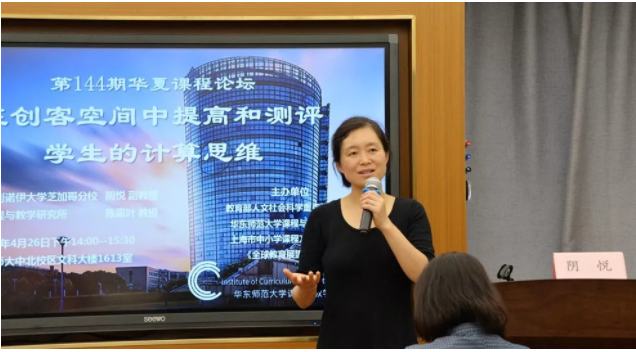
△ Dr. Yin Yue.
Associate Professor, Department of Educational Psychology, University of Illinois, Chicago
Dr. Yin then shared several cases of creative activities and invited teachers and students to participate in interesting interactive experiences. At the same time, she pointed out that in addition to activities, formative assessment embedded in the process of classroom interaction must also be designed to assist. This kind of evaluation method is planned but informal, easy to be accepted by teachers and students, and aims to guide and diagnose teaching and learning.
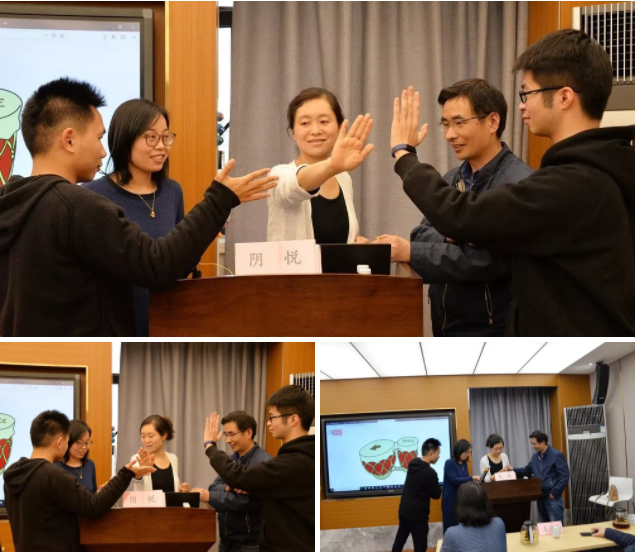
Finally, Dr. Yin described the teaching effectiveness of her team after the implementation of these activities and evaluation. Through the comparison before and after, it is found that the students have a certain improvement in the skills and tendencies of computational thinking, the knowledge content of related subjects and so on. This provides a valuable inspiration for the better cultivation of students' computational thinking. However, there are still many problems worthy of in-depth study in the future, such as how to combine computational thinking with different disciplines, the advanced learning model of computational thinking and so on.
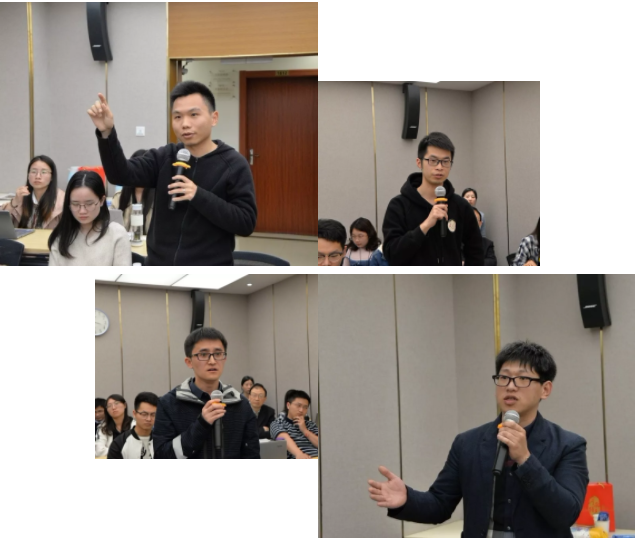
After the report, Dr. Yin had a warm interactive exchange with teachers and students on the spot, and the discussion mainly focused on how to combine the cultivation of computational thinking with science courses, how to further develop and evaluate the high-level goals of computational thinking.